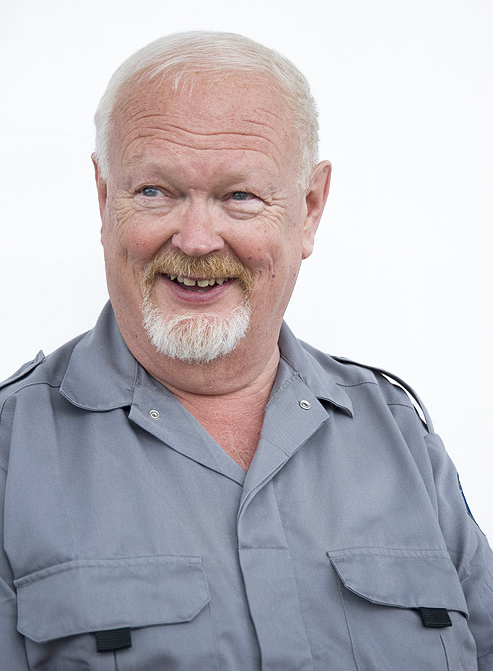UK metal marking company joins call for a Swedish 'peace industry' to fight the illegal arms trade
 The world is faced with a seemingly intractable crisis of an uncontrolled armaments trade, together with vast numbers of unexploded ordinance scattered across the globe. As well as the massive number of casualties – many of them children – there is a tendency for an increase in the availability of weaponry to devalue human life.
The world is faced with a seemingly intractable crisis of an uncontrolled armaments trade, together with vast numbers of unexploded ordinance scattered across the globe. As well as the massive number of casualties – many of them children – there is a tendency for an increase in the availability of weaponry to devalue human life.
That situation has prompted a UK firm that specialises in the application of technology to prevent metal theft from churches and heritage buildings to join in a Swedish-based campaign to apply experience on weaponry to combatting that growth.
Trace-in-Metal was founded by a former West Yorkshire Police detective. The product works by ‘firing’ thousands of microdots into the roofing metal, making it easily identifiable. The microdots survive the extremely high temperatures used in reprocessing the metal, making them identifiable throughout the recycling ‘food chain’.
The company’s research and development director is Prof Bo Janzon (pictured), a Swedish expert on weapons and mine clearance and former chairman of the International Ballistics Society. He joined with fellow academics Profs Lars Ingelstam and Hans Wallin to call on Sweden to put its considerable experience and expertise in armaments and their decommissioning forward as part of that country’s development assistance.
In an article in the weekly magazine Ny Teknik (New Technology) the trio wrote: “Approximately 500,000 people die annually of violence in the world, many from the weapons or explosives. A high level of armed violence in an area reduces the respect for human life, prevents peaceful economic development; aid from the outside world cannot reach it.”
The article continues: “Despite the Ottawa Treaty on anti-personnel mines there are 110 million landmines remaining in the 70 nations [the number of nations believed by the ancients to make up the world]. At the current pace, it will take thousands of years before they can be cleared – if ever.
Large quantities of unexploded ordnance and huge stocks of surplus ammunition and explosives pose severe obstacle to establishing a ‘normal’ society.”
It cites the example of the collapse of the Soviet Union in 1990 as revealing the “…enormous amounts of military material stored in the countries of the Warsaw Pact”.
“Explosive materials cannot be handled by ordinary scrap trade”, the article states, “but must be destroyed or recycled using specific methods.”
Sweden, the writers argue, has the experience and expertise to aid in the task, but time is short.
“Sweden has traditionally a strong position in the field of explosives and their handling. But a lot of knowledge in the field, both in Sweden and abroad, belongs to an older generation and must be transferred before it is dispersed and disappears.
“Swedish skills and industrial resources could be used to transfer knowledge and develop equipment and materials that could be transmitted to the states concerned as part of Sweden’s aid.”
They refer to the former explosives industry in the country – not specifically mentioning Alfred Nobel, but the notion of turning swords into ploughshares is clear.
They then cite the many industries and companies involved in Sweden’s modern ‘peace’ technologies, including Trace-in-Metal as “British, but with a Swedish connection”.
They conclude: “Peace technology can become a Swedish niche, which could alleviate the suffering and improve the living conditions of hundreds of millions of people in violent environments.”
Trace-in-Metal managing director John Minary adds “The microdot technology developed by Trace-in-Metal can be easily applied to small arms and explosives. The resilience of our dots can be used to audit and control disposal routes of weaponry and will have a positive impact on the illegal arms trade.”
A translation of the whole article, which was originally in Swedish, can be viewed on the Trace-in-Metal website, at www.trace-in-metal.com/news.